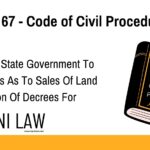Introduction
The Prevention of Corruption (PC) Act, 1988, regulates the process of investigating corruption by public servants. The Act lays down strict conditions for investigating officers, especially regarding the ranks of officers allowed to take action. It also provides safeguards for public officials through Section 17A, introduced via the 2018 amendment. This section mandates prior government approval before starting an inquiry or investigation into decisions made by officials during their official duties. Let’s break down these key provisions.
Who Can Investigate Under the PC Act?
Section 17 of the PC Act overrides the Criminal Procedure Code. It states that only police officers of specific ranks can investigate offences under the Act. These include:
- An Inspector of Police in the Delhi Special Police Establishment (CBI),
- An Assistant Commissioner of Police (ACP) in metropolitan areas like Mumbai, Kolkata, Chennai, and Ahmedabad
- A Deputy Superintendent of Police (DSP) or equivalent rank elsewhere.
Such officers cannot start an investigation or make an arrest without approval from a Magistrate, unless specially authorized by the State Government. For serious offences under Section 13(1)(b), only a Superintendent of Police or higher can approve the investigation.
How Prior Sanction Works for Investigating Public Officials Under Section 17A
Section 17A, added in 2018, introduces a shield for public servants. It prohibits any inquiry or investigation into a public official’s decision or recommendation made during official duties without prior approval.
- If the official works for the Union Government, the Union’s approval is required.
- If the official works for a State Government, that State’s approval is needed.
- For others, approval must come from the authority empowered to remove them from office.
However, no prior approval is needed if the official is caught accepting a bribe on the spot. Also, the competent authority must respond within three months, extendable by one more month with reasons in writing.
Popular Case Law: Dr. Subramanian Swamy v. Director
In the landmark case Dr. Subramanian Swamy v. Director, CBI & Anr., the Supreme Court ruled that the requirement of prior sanction under Section 6A of the Delhi Special Police Establishment Act (which was similar in intent to Section 17A of the PC Act) was unconstitutional. The Court held that such protection for senior public officials created an unfair barrier to investigation and violated the right to equality under Article 14 of the Constitution. Although this judgment came before Section 17A was introduced in 2018, it triggered public debate on balancing corruption investigations and bureaucratic protection. Section 17A was later brought in to address similar concerns but with time-bound approval and limited scope, especially exempting cases of caught-in-the-act bribery. This case remains significant in shaping India’s anti-corruption law framework.
Conclusion
Sections 17 and 17A of the PC Act ensure a balanced approach to investigating corruption. While empowering specific police officers, the law also protects honest public servants from frivolous probes. By requiring prior approval, Section 17A helps avoid misuse of investigative powers and upholds administrative fairness.








